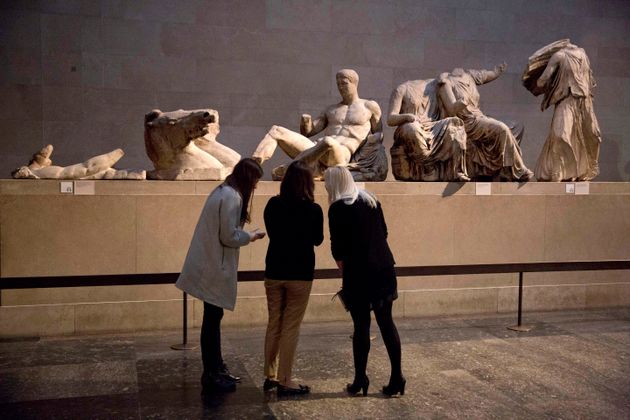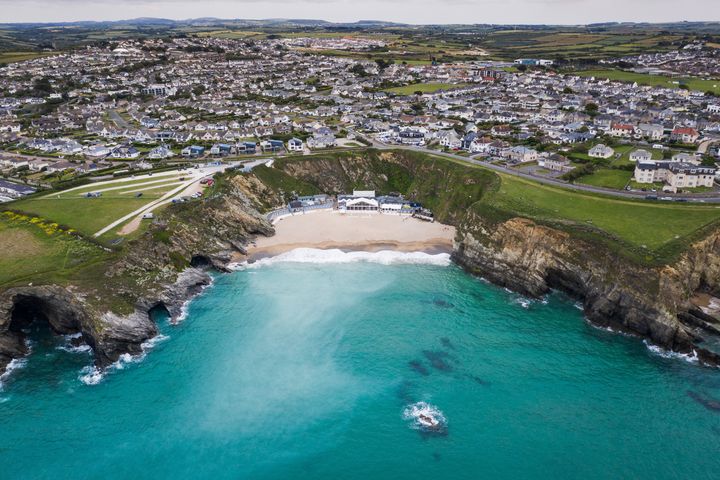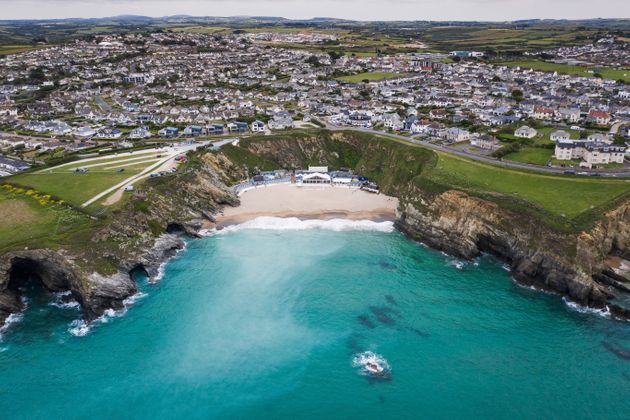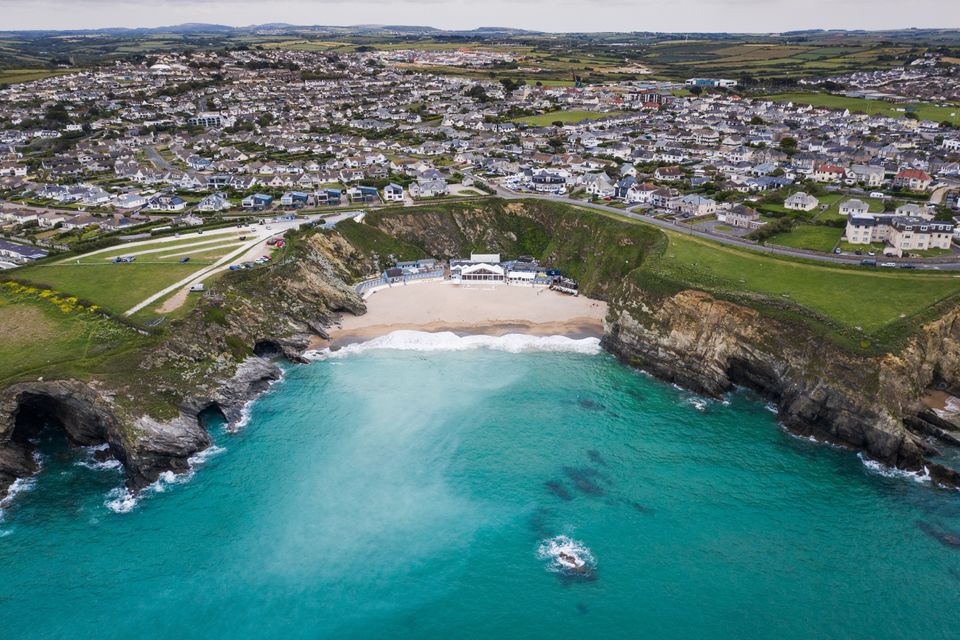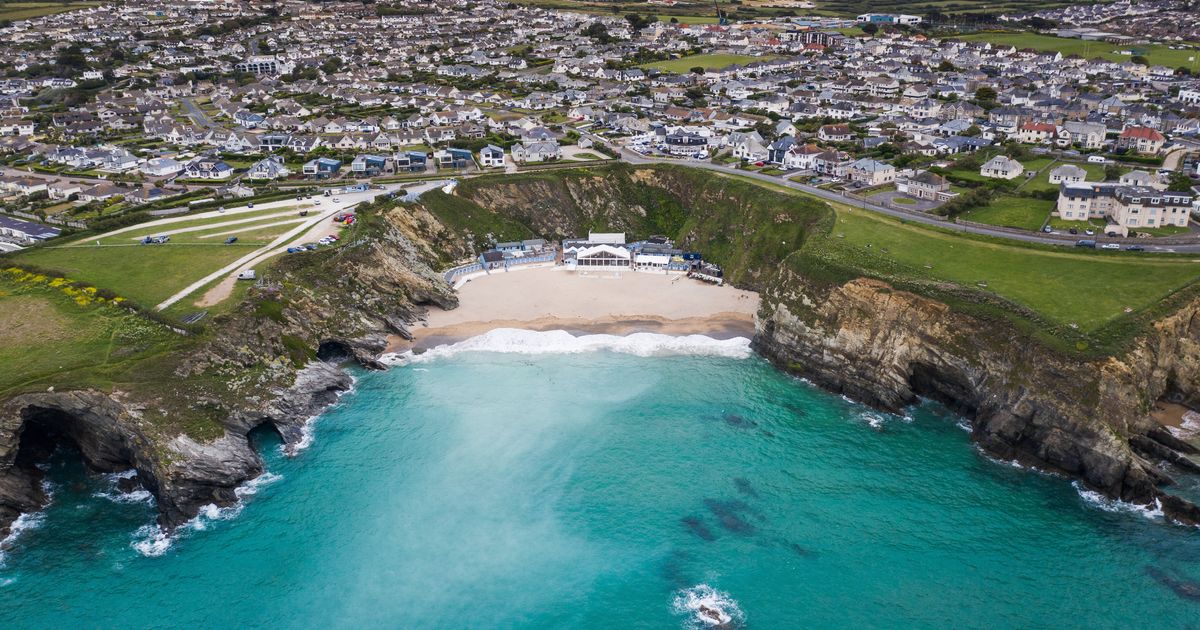
The Elgin Marbles – and the debate over which country owns them – are in the spotlight yet again after Keir Starmer met with his Greek counterpart in Downing Street today.
The artefacts, known as the Parthenon Sculptures in Greece and housed in the British Museum, have been a source of tension between the two countries for decades, as Athens is keen to have them back.
Advertisement
While Downing Street said the topic would not be on the leaders’ agenda during Tuesday’s meeting, a former advisor to the Greek government claimed a deal for returning the items was “close”.
It comes a year after Rishi Sunak created a diplomatic incident when he cancelled a meeting with the Greek PM over the artefacts.
Here’s what you need to know about the sculptures, – and why this topic probably is not going away any time soon.
What are the Elgin Marbles, and why are they so controversial?
The sculptures, first carved 2,500 years ago, were brought to Britain in the 19th Century by British ambassador Lord Elgin.
Advertisement
He removed them from the Parthenon on the Acropolis in Athens, reportedly with permission from the Ottoman authorities, who had ruled the city for 400 years at that point.
About half the surviving marble works are in London and the rest remain in a purpose-built museum under the Acropolis in Athens.
Greece says they were stolen but the British Museum claims they were legally obtained.
Greece has been fighting to retrieve them for years, and first put in a request for London to return the sculptures in 1983, but it was rejected the following year.
However official negotiations have been in progress since 2021, and the British Museum is reportedly considering a special loan agreement with Greece.
The institution’s chair, former Tory chancellor George Osborne, has openly said he is looking for ways to display the marbles in Greece.
Advertisement
And, according to YouGov, 53% of Brits think they should be returned to Greece while only 24% think they should be kept in the UK.
However, the British Museum is legally unable to give up ownership of the sculptures due to the 1963 British Museum Act, which prevents any objects being removed permanently from the institution.
Greece has previously suggested that it will not agree to a loan as that would be admitting the Museum owns the marbles.
What happened between Sunak and Mitsotakis last year?
Then PM Rishi Sunak chose to cancel his meeting with the Greek prime minister lKyriakos Mitsotakis last year after he suggested they could discuss ownership of the marbles.
The Tories remained adamant that they did not want the marbles to leave the museum – however, Sunak’s decision to scrap the face-to-face sparked a diplomatic row.
Advertisement
According to Bloomberg, Mitsotakis said in a statement: “I express my annoyance for the fact that the British prime minister cancelled our scheduled meeting just hours before it was due to take place.
“Greece’s positions on the issue of the Parthenon Sculptures are well known. I was hoping to have the opportunity to discuss them with my British counterpart as well, along with the major challenges of the international situation: Gaza, Ukraine, climate crisis, migration.”
Sunak’s spokesman told reporters: “We have no plans to change our approach and certainly we think that the museum is the right place for them.
“I haven’t asked him specifically about short-term or new ideas that have been put forward, but I think he’s been fairly robust on his position.”
What does Greece say now?
Mitsotakis has been clear that retrieving the marbles is still of great importance for him.
As he told the BBC’s Sunday with Laura Kuenssberg programme in 2023: “It’s as if I told you that you would cut the Mona Lisa in half, and you will have half of it at the Louvre and half of it at the British Museum, do you think your viewers would appreciate the beauty of the painting in such a way?
Advertisement
“Well, this is exactly what happened with the Parthenon sculptures and that is why we keep lobbying for a deal that would essentially be a partnership between Greece and the British Museum but would allow us to return the sculptures to Greece and have people appreciate them in their original setting.”
He was expected to resume his calls for retrieving the marbles after meeting Starmer in November last year.
A former adviser to Greek’s government – Professor Stamatoudi – told the BBC on Tuesday that a deal on the marbles was “close” but she was not sure if it was “close enough”.
She said Greece had offered a “cultural, strategic partnership” where they would send something else to the museum in exchange for the marbles – although negotiations around what it could be remain “secret”.
Advertisement
What does Labour think?
Before getting into No.10, Labour said it would not change the law around items in the British Museum.
But the party suggested that, if elected, they would not prevent a loan deal if the British Museum and the Greek government came to an agreement.
Home office minister Jess Phillips was more candid on Sky News this morning, saying she did not know what the UK were going to do about the marbles.
“I think there’s probably a perfectly sensible solution that can come up,” she said. “It seems like two friendly nations could probably get over this issue.”
Did Starmer and Mitsotakis discuss a deal today?
It remains unclear if the two PMs did mention the touchy subject.
An official government readout of Starmer’s meeting with the Greek PM did not include any reference to the Marbles – although the Greek public broadcaster ERT claimed it was discussed.
Advertisement
A spokesman for the prime minister did not deny that the Greek PM raised the issue of the marbles during his talks with Starmer when asked by journalists, but said the “focus” of the meeting was on economic growth, trade, investment, education and defence.
He said: “It remains the case that decisions relating to the care and management of the sculptures are a matter for the trustees of the British Museum, which is operationally independent of the government and we have no plans to change the law to permit the permanent removal of the sculptures.”
However, he said the prime minister is “always open to discussions with world leaders about priorities important to them”.
Still, the issue has given the Tories a chance to drive the knife in, as they have accused the PM of caving to the “radical left” over the marbles, despite the majority of Brits backing it.
Saqib Bhatti, shadow culture minister, said: “Sir Keir Starmer has already capitulated over the Chagos Islands, and now it appears he is set to cave in to the radical left and return the Elgin marbles to Greece.
Advertisement
“The British Museum has cared for these precious artefacts for generations and given people from around the globe the chance to learn about their tremendous story.
“The marbles are protected by an act of parliament – the PM needs to be clear that he will not allow the law to be changed and block any legal work around that might be devised to allow them to be taken out of this country.
“The prime minister should be standing up for Britain, our heritage, and our world-class cultural institutions instead of giving in to pressure from campaigners who detest British history.”

